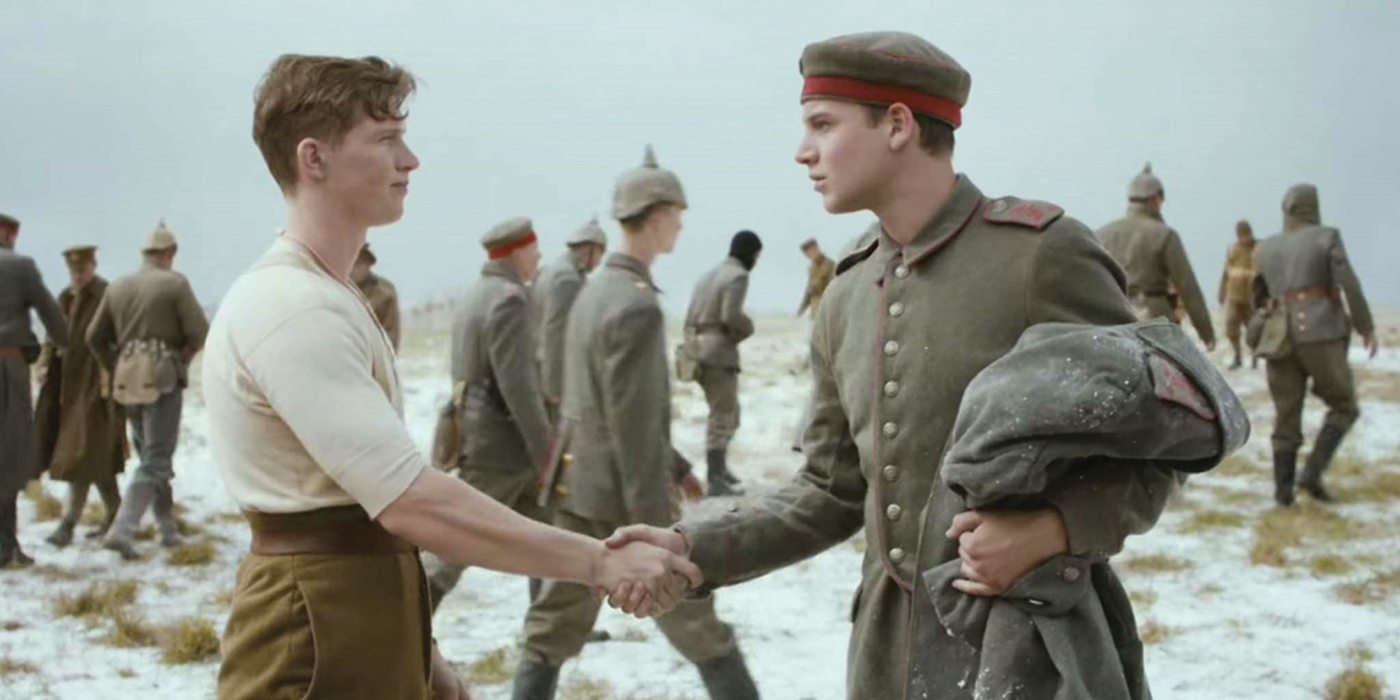t was the most horrific of wars. In World War I the technology of the 20th century ran headlong into a plan of battle straight from the 12th century. Millions of men on both sides died like dogs for nothing.
Less than two decades after World War I the world went to war again. In 1914 however, there were still vestiges of the ancient notion of chivalry on the battlefield. To be fair the war was just underway and nobody knew how awful and how long the carnage would continue.
So it was that in early December the Pope, who was Benedict XV, floated the bold notion that the war might be temporarily halted so that both sides could celebrate Christmas. The nations in combat, at least the leadership, absolutely refused to halt the fighting even for a day. They were fighting a war both sides wanted.
Undeclared Peace
Now that is the background for a series of remarkable events that happened in the trenches in several places on the western front on and around Christmas Day. Along the muddy trenches in 1914 there were reported holiday celebrations by soldiers on both sides and gestures of goodwill between bitter enemies.
In several places on Christmas Eve and Christmas Day 1914 the guns fell silent and there was briefly a peace that was undeclared.
Across the lines of battle German soldiers and British soldiers sang their songs of Christmas. Christmas morning saw one of the most incredible events in the history of combat. German soldiers in several locations emerged from their trenches and crossed “no-man’s land” shouting out “Merry Christmas” in English. The first reaction from the British trenches was suspicion but the Germans carried no guns.
The Allied soldiers climbed out of their trenches and went to meet the advancing soldiers. Both sides shook hands and exchanged gifts of cigarettes and even Christmas puddings. They sang the songs of Christmas together and shook hands.
Christmas ‘Kickaround’
There is a report that in one location of this odd peace there was a Christmas game of soccer or at least a “ kickaround” among soldiers who the day before had been shooting at each other. Amidst those festivities the truce also served as an opportunity for both sides to venture into no-man’s land to retrieve the bodies of fallen comrades.
It was a phenomenon that was not to be repeated. The Commander of the British Second Corps General Sir Horace Smith-Dorrien told his divisional commanders to forbid any “friendly intercourse with the enemy.” His concern was that with trenches in such proximity, sometimes a couple of hundred feet apart, soldiers might lapse into a “live and let live theory of life” with the enemy.
After Christmas both sides went back to war with a vengeance. Between nine and 11 million soldiers would die and the war would drag on for another four years.
The story of the Christmas truce continues however as part of a reflection of the better nature of soldiers both British and German. It is a Christmas tale that speaks well to the humanity of soldiers and the notion that those in the trenches at Christmas that year were not fighting the same war as their superiors, but were answering a higher human call that was neither English or German.
It was just soldiers at Christmas.
NTV’s Jim Furlong can be reached by emailing: [email protected]
